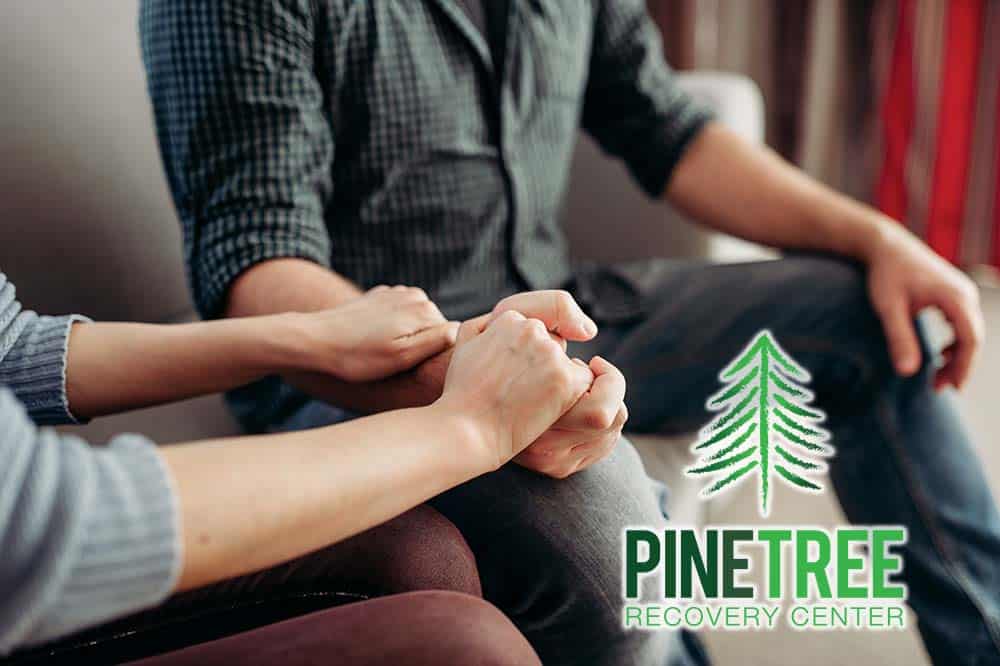Alcohol Addiction Recovery
Is My Parent Abusing Alcohol?
Is My Parent Abusing Alcohol?
How can you tell if your parent is abusing alcohol? It can be difficult to determine whether someone you love is struggling with a diagnosable alcohol use disorder or simply hitting the bottle a bit too hard. However, if you have concerns about the amount of alcohol your parent is consuming on a regular basis, there is no harm in educating yourself on alcoholism and doing some thorough research. According to the Centers for Disease Control and Prevention, “In 2018, more than half of the US adult population drank alcohol in the past 30 days. About 16% of the adult population reported binge drinking, and 7% reported heavy drinking.” Between the years 2011 and 2015, excessive alcohol consumption was directly linked to roughly 95,000 deaths each year. The World Health Organization states, “There is a causal relationship between harmful use of alcohol and a range of mental and behavioral disorders, other noncommunicable conditions as well as injuries. Beyond health consequences, the harmful use of alcohol brings significant social and economic losses to individuals and society at large.” Clearly, the implications of alcohol use and dependence are far-reaching and significant. If you are concerned that someone you love has been abusing alcohol, you are not alone — and Pine Tree Recovery Center is available to help.
We have developed a program of alcohol addiction treatment geared towards helping each individual client recover from alcoholism as their loved ones heal simultaneously. In addition to providing our clients with a safe, pain-free alcohol withdrawal, we actively prepare them for continued success in sobriety. Contact us today to learn more.
Effects of Alcoholism on the Children of Alcoholics
The effects of alcohol abuse on children are far-reaching. Families in which one or both parents struggle with alcoholism are far more likely to experience a wide range of other (related) issues, such as:
- Poor parenting skills, often leading to behavioral problems in children.
- A lack of structure and routine, often leading to problems at school.
- Increased conflict within the home, such as fighting, arguing and physical violence.
- A lack of healthy communication, sometimes leaving children feeling isolated and alone with no one to talk to or rely on for emotional support.
- A lack of a familial role model, which can lead the children closer to poor decision making and a lack of structure later on in life.
- Community isolation and isolation from peers based on feelings of shame and embarrassment.
- Financial struggles; those who struggle with alcoholism tend to struggle with personal finances, leading to debt and other forms of financial insecurity and strain.
If you grew up in an alcoholic household, there is a good chance you have grown accustomed to the chaos and uncertainty that go hand-in-hand with ongoing substance abuse. It is important to note, however, that unhealthy patterns can be successfully broken at any point in time. It is nearly impossible to break long-standing patterns without professional help. While you cannot will someone into living a life of recovery, there are certain steps you can take to help point them in the right direction. Contact Pine Tree Recovery Center to learn more.
Alcoholism Signs & Symptoms
If you think your parent might be struggling with an alcohol use disorder, there are several telltale signs and symptoms to keep an eye out for.
Physical Warning Signs of Alcohol Abuse
The physical warning signs of alcohol abuse include:
- Significant weight loss or weight gain.
- Appearing disheveled/less attention paid to personal appearance.
- Redness of the cheeks and nose.
- Frequently experiencing nausea and vomiting.
- Appearing uncoordinated.
- Commonly falling/unexplained bruising and injury.
- Yellowing of the skin, common with advanced alcoholism (jaundice).
- Health-related issues like cirrhosis and liver disease.
- Frequent and severe hangovers.
- Dehydration.
- Experiencing withdrawal symptoms when alcohol use is abruptly stopped.
Psychological Warning Signs of Alcohol Abuse
The psychological warning signs of alcohol abuse include:
- Increased anxiety and frequent panic attacks.
- Depressed mood and suicidal ideation.
- Mood swings, often characterized by increased agitation and irritability.
- Significant memory loss (long and short-term).
- Difficulty focusing and paying attention.
- Psychological dependence on alcohol.
Behavioral Warning Signs of Alcohol Abuse
The behavioral warning signs of alcohol abuse include:
- Isolating from friends and family members.
- Requiring more privacy/acting more secretive.
- Spending more time out/coming home at strange times.
- Acting defensive whenever drinking is brought up in conversation.
- Hiding alcohol and empty alcohol bottles throughout the house.
- Engaging in more risk-taking activities, like driving while intoxicated.
- Prioritizing drinking over everything else.
The Diagnostic and Statistical Manual of Mental Disorders, Fifth Edition (DSM-V) outlines a list of diagnostic criteria that must be present in order for an alcohol use disorder to be professionally diagnosed. These criteria are:
- Attempting to cut back on the amount of alcohol you consume but being unable to do so for any significant length of time.
- Having a difficult time stopping once you start/drinking more frequently and drinking a greater amount than intended.
- Spending a significant amount of time obtaining alcohol, drinking and recovering from the effects of alcohol consumption.
- Continuing to drink despite negative consequences directly related to drinking.
- Experiencing intense cravings for alcohol.
- Failing to fulfill personal obligations and responsibilities because of excessive alcohol consumption.
- An increase in risk-taking behaviors, like driving while intoxicated.
- Developing a physical tolerance, meaning that a greater amount of alcohol is needed in order for the desired effects to be produced.
- Experiencing withdrawal symptoms when alcohol use is stopped suddenly.
If your parent is exhibiting more than two of the symptoms listed above, professional treatment has likely become necessary. Reach out to Pine Tree Recovery Center for more information on which steps to take next.
Our Alcohol Detox Services Include
How to Help a Parent Who is Struggling with Alcoholism
What steps can you take to help a parent who has been struggling with alcoholism? The answer to this question depends on several factors, including the nature of your relationship and the severity of the alcohol use disorder. If you have a very close and open relationship with your parent, they might be more receptive to a one-on-one conversation. If the alcohol use disorder is particularly severe, an intervention might be necessary.

We recommend attempting to have an open and honest conversation, first and foremost. Make sure your parent is completely sober at the time of the conversation. Address the subject gently, with kindness, compassion and understanding. Avoid pointing fingers or making accusatory claims. Rather than say, “You drink too much,” try saying something more like, “I’m concerned about the ways in which alcohol is impacting your physical health and emotional well-being.” Before you address the subject, educate yourself on alcoholism and effective treatment options. If you have any questions about effective treatment for alcohol abuse and dependence, contact us today.
Treatment Options for Alcohol Addiction
If your parent has been struggling with alcoholism, the following options are available:
- Interventions for Alcoholic Parents – If your parent refuses to seek professional help on their own accord, staging a professional intervention might be a good idea. Licensed interventionists have seen alcohol use in all forms and the subsequent issues that come along with it and they know how to best manage the immediate crisis and create a plan to get to the first stage of the recovery process — medically monitored detox.
- Detox for Alcoholism – When it comes to alcohol abuse and dependence recovery, medical detox always comes as a recommended first step. The symptoms associated with alcohol withdrawal can be severe, and even life-threatening when they are left untreated. While in detox a person undergoes a safe and comfortable alcohol withdrawal while preparing to take the next appropriate step in the treatment process.
- Inpatient & Outpatient Treatment for Alcohol Use Disorder – Medical detox is an important initial step, but in order for sobriety to be maintained, detox should be followed up by a higher level of care. Depending on the personal needs of your parent, inpatient treatment, outpatient treatment or a combination of both might be recommended.
Support for Children of Alcoholics
If you have a parent who has been struggling with an alcohol use disorder, it is important to begin prioritizing your own needs — regardless of whether or not they agree to seek help. The following resources are available to you, and we encourage you to reach out for additional help directly at any point in time.
- Co-Dependents Anonymous – Also known as CoDA, this support group is a recovery program designed to help those struggling with codependency.
- Adult Children of Alcoholics – Also known as ACA, this support group was developed for people who grew up with alcoholic parents, or whose parents developed alcoholism later on in life. According to the official website, “ACA provides a safe, nonjudgmental environment that allows us to grieve our childhoods and conduct an honest inventory of ourselves and our family—so we may (i) identify and heal core trauma, (ii) experience freedom from shame and abandonment, and (iii) become our own loving parents.”
Ready To Begin Your Alcohol Detox?
We Offer A Safe & Effective Program
Don’t let Alcohol addiction control your life.
Call us today and let’s get you started on the path to a better you.
Therapy for Children of Alcoholics – Individual therapy is always a good option, regardless of whether or not you feel therapy is necessary. Individual therapy allows you a safe, supportive and non-biased environment to delve deeper into past trauma and understand the ways in which your childhood experiences have impacted who you are today.

Begin Healing Now!
Have A Call With One Of Our Treatment Advisors
Don’t Suffer Any Longer
Contact Us Today to Learn More
If you believe that someone you love has been struggling with an alcohol use disorder, we are available to help. When you reach out to Pine Tree Recovery Center, whether by form, chat or call, you will be instantly connected to one of our Treatment Advisors. Most of our team members are either in recovery themselves or have helped a loved one through the process, allowing them a unique and compassionate perspective. We understand exactly what you are going through and are ready to help make the process of getting admitted to treatment as straightforward as possible. We offer a pre-admission addiction assessment for any patient considering treatment with Pine Tree Recovery Center. During the pre-admission phone call, our Treatment Advisors will speak with you or your loved one to learn more about your personal needs and make sure that our New England alcohol detox center is the best fit for you. Once the pre-assessment is complete it is sent to our medical and clinical teams to review and begin crafting a customized treatment plan. In the next stage of the admissions process the Treatment Advisor will help with insurance verification and treatment cost questions. Finally, we will help arrange travel plans and set a date and a time for your intake. Contact us today to begin your personal journey of alcohol addiction recovery.

Reviewed for accuracy by:
Randi Bruneau
LCSW, LADC, CCS
Randi is a Licensed Clinical Social Worker and Licensed Alcohol and Drug Counselor and Supervisor who has over 20 years of experience in the field of mental health and addictions. She has worked in both clinical and administrative leadership roles and also has extensive career experience in gender specific trauma treatment, crisis intervention, structural family work and substance use disorder treatment and supervision.
To learn more about our family program please give us a call today, and feel free to give us a call if you’d like some support or guidance when it comes to the more difficult-to-have conversations.
Get Help Now
24/7 Call (888) 693-1751























